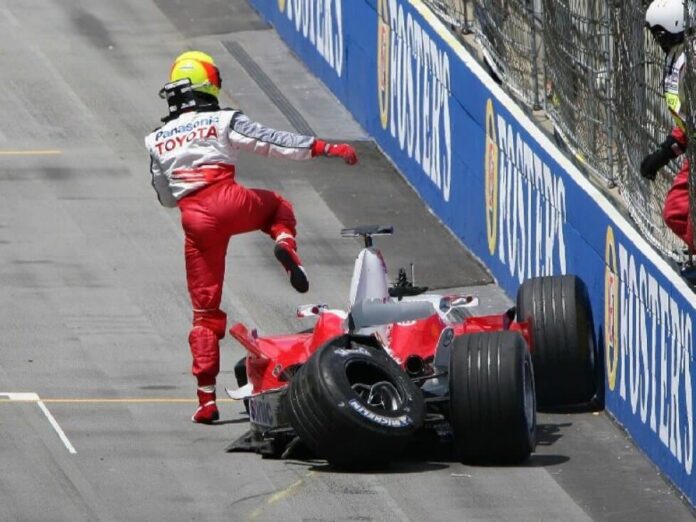In an exclusive interview, Ralf Schumacher explains why Toyota’s approach in Formula 1 did not work and the project ultimately failed
Measured by budget, Toyota’s Formula One team in the early 2000s is considered one of the most unsuccessful projects in the history of the premier class. Between 2002 and 2009, the Japanese team managed to achieve 13 podium finishes in eight years in Formula One.
However, considering how much money Toyota invested in the project, it is a complete disappointment that they never won a race in all those years and never got further than fourth place in the Constructors’ Championship.
“From my point of view, Toyota failed miserably because their success in the automotive sector was [always] to produce the same quality,” reveals the six-time Grand Prix winner, explaining that this was how Toyota succeeded in its core area ‘for decades’.
“Quality assurance was a rotating position for them,” says Schumacher, who explains: ‘This meant that every engineer or every employee had to rotate permanently to ensure that if one person dropped out, the other could simply take over the job to ensure quality for the customer.’
Schumacher: Toyota mistrusted the Formula 1 team
This approach makes “perfect sense in the automotive sector,” emphasizes Schumacher. But: “If I try this in Formula 1, then it becomes problematic.” Because in Formula 1, this approach takes far too much time.
Schumacher explains: “These people first have to find each other, which takes a while. And then they have to work together, and then they also have to learn to be successful together. […] And that’s what Toyota did wrong.”
According to Schumacher, the lack of success in turn led to further problems. “On top of that, of course, because it wasn’t working so well, there was a certain mistrust. This led to many people from Toyota in Japan supervising the European side,” he reveals.
Because the important decisions were made in Japan at the time, while the day-to-day business, such as building the cars, was handled in Cologne. There, the people from the Japanese side were then “forced” to “write reports,” Schumacher recalls.
“They wrote more reports than they thought about how we could go faster. That was the final straw,” said Schumacher, who finally left Toyota after the 2007 season. Two years later, the entire Formula 1 project was discontinued.





